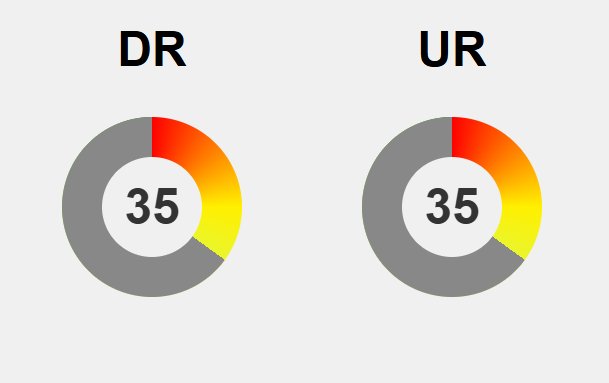Friedrich Nietzsche’s provocative ideas continue to challenge our understanding of morality, power, and human potential, urging us to question inherited beliefs and forge our own paths. His fierce rebellion against traditional values and his concept of self-overcoming inspire a culture of authenticity and resilience amid chaos. But how can embracing chaos lead to growth without descending into recklessness? Nietzsche’s declaration of the ‘death of God’ invites us to create meaning in a world devoid of divine authority—are we truly free to define our purpose? His influence stretches across philosophy, art, psychology, and social movements, fueling movements that prioritize individual agency and radical self-expression. Yet, critics warn of potential misuse, risking elitism or social division. As we grapple with ongoing cultural shifts, Nietzsche’s legacy challenges us to live passionately, think independently, and harness chaos as a catalyst for renewal—can we truly embrace the transformative power of self-creation in an ever-changing world?
Nietzsche’s Bold Challenge to Traditional Values and the Path of Self-Creation
Friedrich Nietzsche’s ideas continue to resonate deeply within modern thought, influencing philosophy, art, psychology, and culture in ways that are still felt today. His bold challenge to traditional values—particularly those rooted in religion, morality, and societal expectations—has sparked ongoing debates about authenticity and individual freedom. Nietzsche’s emphasis on questioning authority and looking beyond accepted truths encourages a shift toward self-creation, inspiring countless thinkers and creators to forge their own paths rather than conform to inherited norms.
His critique of religious authority, especially Christianity, was revolutionary. Nietzsche saw the decline of divine influence as a moment of liberation, where individuals could define their own morals and purpose. The famous phrase “death of God” captures this idea—not as a loss, but as an invitation to take responsibility for meaning in a world without divine guidance. This perspective has reshaped how we understand morality, pushing us to consider authenticity and vitality as central to human life.
Understanding Nietzsche’s influence also involves recognizing the cultural shifts his ideas helped ignite. From literature and art to psychology and politics, his call to challenge conventions and embrace individual strength has left a lasting mark. Thinkers like Sartre and Camus expanded on his themes, framing life as an ongoing act of self-overcoming in a universe that offers no inherent purpose. His provocative language continues to motivate those who seek to question societal norms and live with passion and integrity.
At the same time, Nietzsche’s ideas are complex and sometimes controversial. His celebration of chaos and strength can be misinterpreted or misused to justify elitism or reckless independence. Critics warn that without nuance, his rejection of universal morals might lead to moral relativism or social division. Yet, his core message—question everything and forge your own path—remains a powerful call for authenticity and resilience amid a rapidly changing world.
Today, Nietzsche’s influence extends beyond philosophy into the fabric of modern culture. His ideas inspire artists, psychologists, and social movements that prioritize individual agency and self-overcoming. They challenge us to confront chaos not as a threat but as an opportunity for growth. As society continues to evolve, his legacy encourages us to embrace uncertainty, live passionately, and redefine what it means to be truly free.
His work invites ongoing reflection on how we balance personal authenticity with social responsibility. Nietzsche’s rebellious spirit urges us to question inherited beliefs and create meaning from chaos. In doing so, we unlock new potential for human development—both individually and collectively. His ideas remain a vital force, urging each generation to challenge conventions and craft their own authentic narrative in an ever-changing world.
Core Concepts of Nietzsche’s Philosophy: Will to Power and Eternal Recurrence
Friedrich Nietzsche’s philosophy centers around a few powerful ideas that challenge our conventional understanding of morality, power, and human nature. At the core is the “will to power,” which suggests that humans are driven by an innate desire to assert influence, grow stronger, and shape their own destinies. This drive goes beyond mere survival or pleasure; it’s about constantly overcoming oneself and reaching new heights of personal growth. Alongside this, Nietzsche introduced the concept of “eternal recurrence,” the idea that life repeats itself infinitely in a cycle. Living with this awareness encourages us to act as if every moment will recur forever, inspiring a life filled with intensity and purpose.
A pivotal moment in Nietzsche’s thought is his declaration of the “death of God,” a phrase symbolizing the decline of absolute religious authority, especially Christianity, in Western society. This isn’t just about losing faith but about recognizing that, in a world without divine guidance, individuals must create their own values. Nietzsche believed that once the old certainties vanished, we gained the freedom—and the responsibility—to forge a new, authentic path rooted in vitality and self-overcoming. These ideas directly challenge traditional morality, which he saw as restrictive and life-denying, urging us instead to embrace our instincts and passions as sources of strength and authenticity.
Understanding Nietzsche’s philosophy is easier when considering his background. Growing up in 19th-century Germany within a religious family, he was expected to follow a spiritual route. Yet, from an early age, he questioned authority—religious, societal, and cultural. His academic pursuits in classical languages and philosophy, combined with exposure to scientific and cultural upheavals, fueled his skepticism. These experiences shaped his view of a world in flux, demanding a radical re-evaluation of accepted values. His personal health struggles and social rejection further motivated his quest for a deeper, self-made meaning beyond inherited beliefs.
Nietzsche’s major works deepen these core ideas. In *The Birth of Tragedy*, he contrasted the Apollonian and Dionysian aspects of human experience, emphasizing the importance of embracing chaos and instinct. Later, in *Thus Spoke Zarathustra*, he introduced the idea of the Ubermensch—an ideal of self-overcoming who lives beyond traditional notions of good and evil. His *Genealogy of Morality* critically examined the origins of moral values, revealing how they often serve societal interests rather than human flourishing. These writings collectively reflect his ongoing effort to overturn conventional thinking and inspire individuals to craft their own meaning and purpose.
The Profound Impact of Nietzsche’s Ideas on Morality, Identity, and Power
Nietzsche’s ideas have profoundly reshaped how we understand morality, identity, and power in the modern world. His concept of the “will to power” emphasizes that human drives go beyond mere survival—they’re about asserting influence, overcoming limitations, and reaching new heights of personal strength. This notion challenges traditional views of human nature, encouraging us to see continuous self-overcoming as a central goal. Similarly, the idea of “eternal recurrence” asks us to consider whether we’re living authentically, as if every moment would repeat infinitely. It’s a provocative challenge to live with purpose and intensity, aligning our actions with our deepest values.
The declaration of the “death of God” marked a turning point in Western thought. It wasn’t simply about losing religious faith; it symbolized the decline of absolute divine authority that had traditionally underpinned morality. Nietzsche argued this shift offered a chance for individuals to create their own values, embracing freedom and responsibility in a world without divine guidance. This idea sparked debates about the origins of morality and how to find purpose amid relativism, laying the groundwork for existentialist thinking that emphasizes personal responsibility in crafting meaning.
Nietzsche’s influence extends well beyond philosophy into art, literature, and social movements. His critique of societal norms and focus on individualism inspired artists and writers to challenge conventions and explore new expressive forms. His emphasis on embracing chaos and instinct has fueled movements that prioritize authenticity and raw emotion over tradition. Thinkers like Sartre and Camus built on his themes, framing life as a continuous act of self-creation amid a universe that offers no inherent purpose. His words continue to motivate those who seek to rebel against conformity and live with passion and integrity.
However, Nietzsche’s provocative ideas are not without controversy. Critics warn that his emphasis on strength and self-assertion can be misinterpreted or exploited to justify elitism or reckless independence. His rejection of universal morals raises questions about moral responsibility and social cohesion, especially in diverse societies. Such concerns highlight the importance of approaching his philosophy with nuance, ensuring his call for self-overcoming promotes growth and authenticity without fostering division or arrogance.
Despite these complexities, Nietzsche’s core message remains compelling: question everything and forge your own path. His challenge to accepted norms invites us to embrace chaos as a catalyst for growth and self-discovery. His ideas inspire a mindset that values authenticity and resilience in turbulent times, encouraging us to live passionately and think independently. This rebellious spirit continues to shape modern thought, urging us to push boundaries while remaining responsible for our actions.
Looking ahead, Nietzsche’s influence will likely continue to spark debate and innovation. His teachings push us to see chaos not as a threat but as an opportunity for renewal. Embracing his rebellious spirit can help us build more inclusive, conscious communities that value diversity and authentic self-creation. By questioning inherited beliefs and embracing the chaos of self-creation, we unlock new potential for human development and cultural transformation rooted in authenticity and resilience. His ideas remain a vital force, inspiring each generation to challenge conventions and craft their own authentic narrative in an ever-changing world.
As we continue to explore Nietzsche’s influence, it becomes clear that his ideas about self-overcoming and individual authenticity can be further enriched through accessible resources that deepen our understanding. For those interested in grasping the full scope of his philosophy, exploring comprehensive analyses like this overview of Nietzsche’s philosophy offers valuable insights. Engaging with such materials helps us integrate his challenging concepts into our own journey of personal growth and societal change.
Nietzsche’s Influence on Modern Culture, Psychology, and Social Movements
Nietzsche’s ideas continue to ripple through modern culture, psychology, and social movements in ways that challenge the status quo and inspire new ways of thinking about human potential. His emphasis on individualism and self-overcoming fuels artistic expression, encouraging creators to push boundaries and explore raw, authentic voices that often confront societal norms. From avant-garde art to provocative literature, his call to embrace chaos and instinct has opened space for voices that question authority and celebrate personal truth.
In psychology, Nietzsche’s focus on inner drives and resilience has shaped approaches like existential therapy and humanistic psychology. These fields emphasize living authentically, taking responsibility for choices, and crafting personal meaning in a universe that offers no fixed purpose. His idea that strength emerges from confronting chaos rather than avoiding it resonates deeply with those seeking to overcome personal struggles and find genuine purpose amid uncertainty. This perspective transforms vulnerabilities into sources of growth and empowerment.
Social movements today draw heavily on Nietzschean themes of empowerment and non-conformity. His rejection of imposed norms encourages individuals to forge identities beyond societal expectations and embrace their uniqueness. Movements advocating for personal freedom, radical self-expression, and authenticity often echo his call to challenge inherited beliefs and live passionately. However, this emphasis on individual strength can sometimes be exploited to justify elitism or reckless independence, underscoring the need for a balanced understanding of his ideas.
Despite these risks, Nietzsche’s core message remains compelling: question everything and forge your own path. His challenge to authority and tradition sparks ongoing reflection on how we define morality, purpose, and human potential. His ideas inspire a mindset that values resilience, authenticity, and active self-creation in turbulent times. By embracing chaos as a catalyst for growth, we are encouraged to live passionately and responsibly, shaping a culture that celebrates diversity and continuous reinvention.
Looking ahead, Nietzsche’s influence is poised to deepen as society wrestles with questions of identity and collective responsibility. His call to see chaos not as a threat but as an opportunity for renewal encourages us to rethink how we approach change and growth. His rebellious spirit invites us to build more inclusive communities that value authenticity and foster resilience, ensuring his ideas remain a vital force in cultural evolution.
Ultimately, Nietzsche’s legacy reminds us that true freedom involves both strength and responsibility. His ideas challenge us to look inward, question inherited beliefs, and create meaning amid chaos. As each generation faces new uncertainties, his philosophy urges us to live with passion, think independently, and continually push boundaries. In doing so, we honor his call to forge a more conscious, authentic, and resilient future.
Embracing Chaos and Crafting a Resilient Future: Nietzsche’s Enduring Legacy
Nietzsche’s rebellious spirit and radical ideas continue to shape how we understand freedom, morality, and human potential today. His emphasis on self-overcoming and living authentically remains a powerful call to challenge societal norms and forge our own paths amid a world full of change and uncertainty. As we face new cultural and social shifts, his ideas encourage us to question the status quo and seek meaning through personal growth and inner strength.
Looking ahead, Nietzsche’s influence promises to stay relevant as future generations grapple with questions of identity, authority, and purpose. His challenge to accept chaos as part of life pushes us to embrace uncertainty instead of resisting it. This mindset fosters resilience and creativity, inspiring us to craft new ways of understanding ourselves and our place in a rapidly evolving world. His call to live passionately and authentically remains a vital reminder that true freedom involves both strength and responsibility.
The ongoing interpretation of Nietzsche’s provocative ideas will shape how society balances individual empowerment with collective well-being. While some may misuse his emphasis on strength to justify elitism, a nuanced understanding helps keep his core message alive: that personal authenticity and responsible freedom are not mutually exclusive. Instead, they can work together to cultivate more conscious, inclusive communities that value diversity and self-expression without losing social cohesion.
As modern culture continues to evolve, Nietzsche’s legacy invites us to see chaos and upheaval as opportunities for renewal. His ideas challenge us to think beyond traditional boundaries, fostering a culture of innovation and self-reinvention. By questioning inherited beliefs and embracing the chaos of self-creation, we unlock new potentials for human growth and contribute to cultural transformation rooted in authenticity and resilience.
His teachings serve as a beacon for navigating contemporary challenges, urging us to live with passion, think independently, and challenge the limits imposed by convention. In doing so, we honor his call for responsible freedom—an authentic pursuit of greatness that recognizes our power to shape our destiny. Nietzsche’s influence persists because it pushes us to believe in the possibility of continuous renewal amid chaos.
In the end, his enduring legacy is a testament to the importance of questioning, creating, and evolving. As each generation faces new uncertainties, Nietzsche’s ideas remind us that genuine freedom emerges from embracing complexity and chaos. By carrying forward his rebellious spirit, we can forge a future that is more conscious, more resilient, and more true to the human potential he so fiercely championed.




